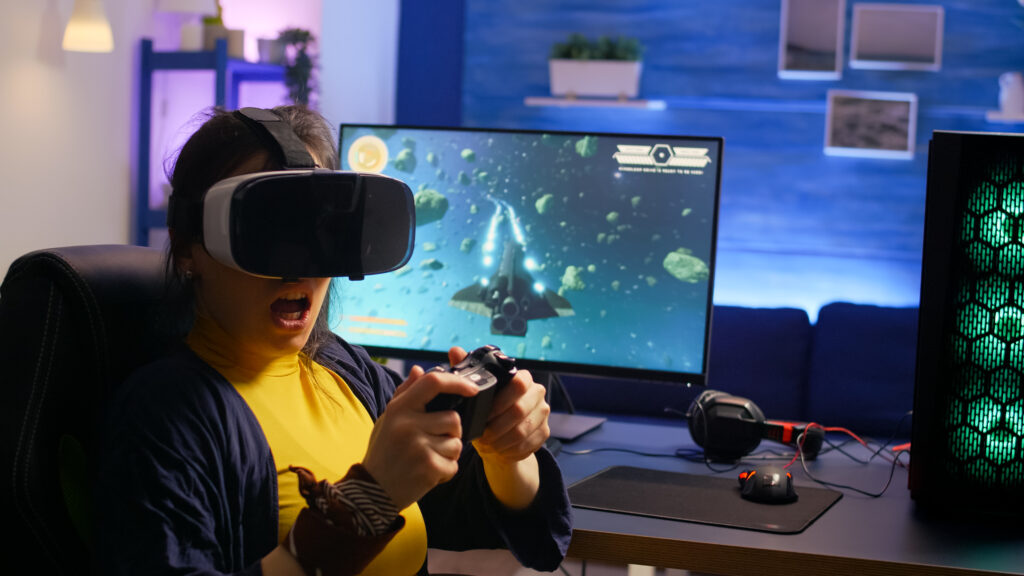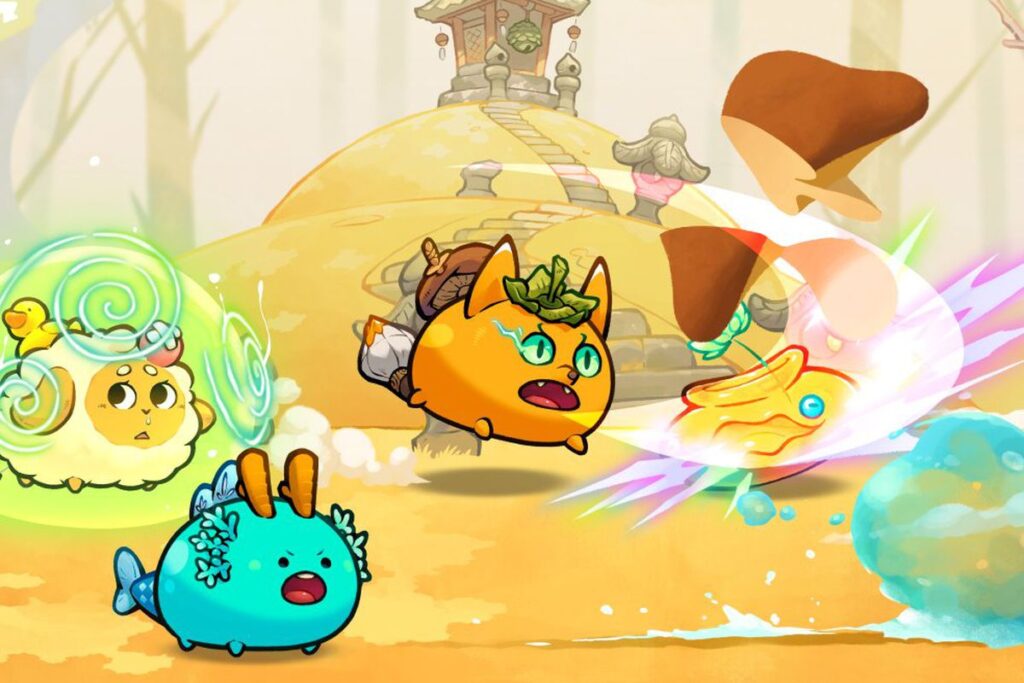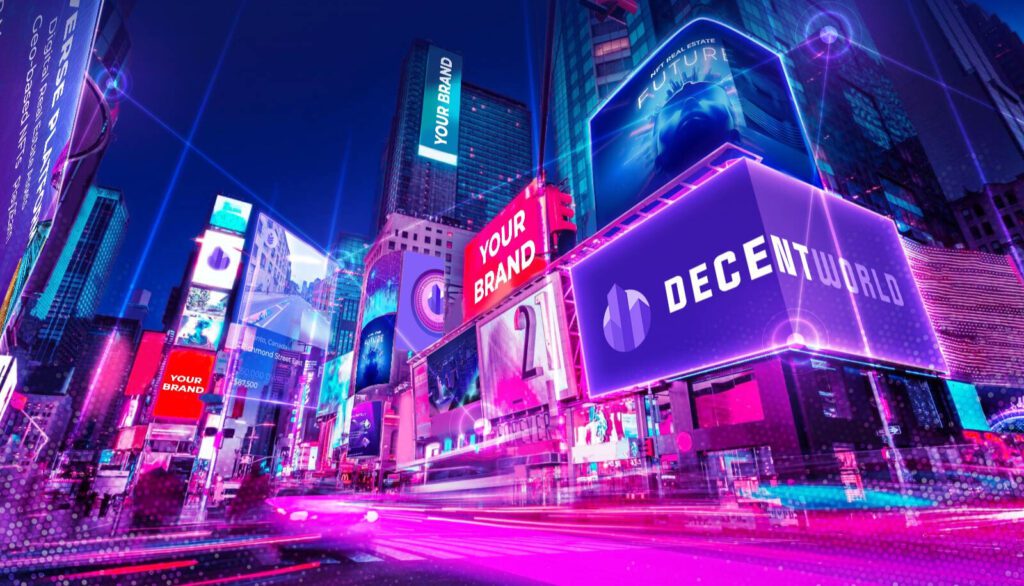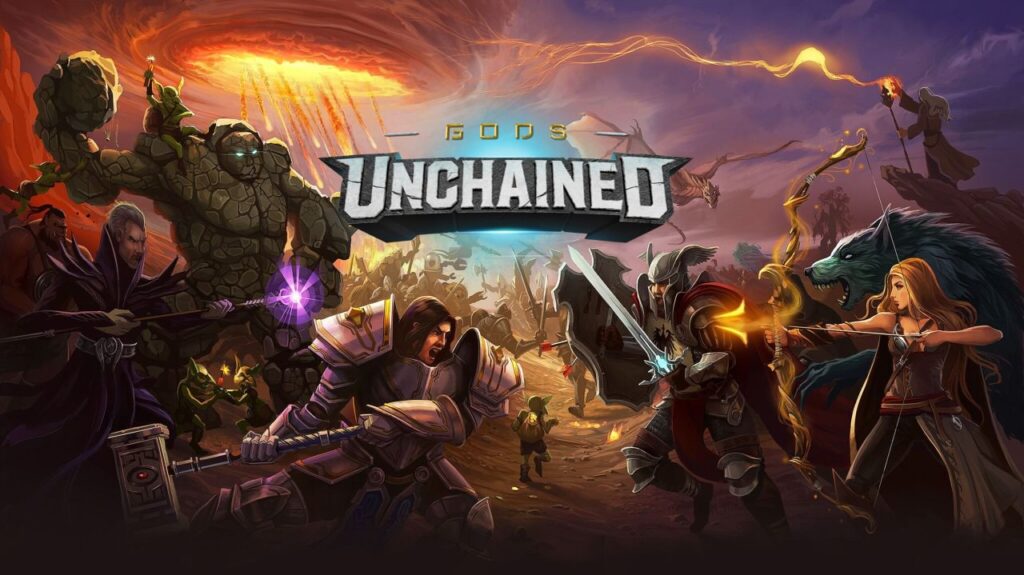In the ever-evolving landscape of technology, blockchain has emerged as a transformative force, revolutionizing various industries, including finance, supply chain management, and now, gaming. But what are blockchain games?
Blockchain games represent an era of decentralized, transparent, and immersive gaming that has started to dawn upon us. Today, we want to explore in this article what are blockchain games – and the reasons why are they gaining traction among gamers and developers alike.
Read also: NFT game developers – top market cues
What are blockchain games?
Blockchain games represent an evolution in the gaming industry by integrating traditional gaming elements with the innovative capabilities of blockchain technology. To understand what are blockchain games, we first to understand blockchain technology.
The most important thing to understand is that blockchain games revolutionize the concept of ownership within virtual environments. Unlike conventional games where players essentially rent or borrow in-game assets, blockchain games empower players with true ownership rights over their digital possessions.

This means that players have complete sovereignty and control over their in-game assets, ranging from characters and items to virtual real estate. This control is pivotal to understanding what are blockchain games – through the transparent and immutable nature of blockchain technology, players can verify the authenticity and scarcity of their assets, thus ensuring a level of trust and security previously unseen in gaming.
Blockchain games introduce the concept of provably fair gameplay, addressing longstanding concerns regarding the integrity of game mechanics and outcomes. By leveraging blockchain’s decentralized and transparent nature, these games offer verifiable proof that all in-game actions and transactions are conducted fairly and without manipulation.
This transparency fosters a sense of trust between players and developers, eliminating doubts about the legitimacy of game results and enhancing the overall gaming experience.
Another significant feature of blockchain games is the establishment of decentralized marketplaces for buying, selling, and trading in-game assets. Traditional games often restrict players to closed, centralized ecosystems where transactions are subject to developer regulations and limitations; in contrast, blockchain games empower players to freely exchange their digital assets on decentralized platforms, bypassing intermediaries and enjoying a peer-to-peer trading experience.
This decentralized marketplace fosters a dynamic economy within the game, where the value of virtual assets is determined by supply, demand, and player-driven interactions.
Furthermore, blockchain technology ensures the security and integrity of transactions within these games. Through the use of cryptographic techniques and smart contracts, players can conduct secure and transparent transactions without relying on traditional payment systems or third-party intermediaries.
This not only enhances the efficiency of in-game transactions but also mitigates the risk of fraud, hacking, or unauthorized manipulation of player assets.
Read also: Discover the 6 best blockchains for gaming

4 key features of blockchain games
At the end of the day, the main characteristics of blockchain software come down to:
1. Ownership and interoperability
In blockchain games, in-game assets are represented as non-fungible tokens (NFTs), which are unique digital tokens stored on a blockchain. These NFTs can be traded across different games or platforms, fostering interoperability and expanding the gaming ecosystem.
2. Transparency and immutability
Blockchain technology ensures transparency by recording all in-game transactions on a public ledger that is immutable and tamper-proof. This transparency instills trust among players, as they can verify the authenticity and scarcity of in-game items.
Don’t miss: 7 incredible modern trends in the gaming industry
3. Play-to-earn mechanics
Unlike traditional games where players invest time and money without tangible rewards, blockchain games introduce play-to-earn mechanics, allowing players to monetize their gaming skills and efforts.
By completing tasks, achieving milestones, or participating in tournaments, players can earn cryptocurrency or valuable in-game assets.
4. Community governance
Many blockchain games embrace decentralized autonomous organization (DAO) models, empowering players to participate in governance decisions such as game development, asset distribution, and rule changes.
This democratic approach fosters a sense of community ownership and fosters a deeper connection between developers and players.
3 examples of blockchain games
For you to briefly picture what blockchain games are all about, read our list below of top experiences out in the market today:
Axie Infinity

Axie Infinity, a blockchain-based game developed by Sky Mavis, has garnered widespread acclaim for its play-to-earn mechanics and vibrant ecosystem. Players collect, breed, and battle adorable creatures called Axies, earning the native cryptocurrency, Smooth Love Potion (SLP), by participating in battles and completing quests.
Decentraland

Decentraland is a virtual reality platform built on the Ethereum blockchain, where users can buy, sell, and develop digital real estate and create immersive experiences. Through the use of NFTs, users can monetize their creations and interact with other players in a decentralized metaverse.
Read also: The relation between metaverse and blockchain explained
Gods Unchained

Developed by Immutable, Gods Unchained is a digital trading card game where players collect, trade, and battle with unique cards represented as NFTs. With a focus on competitive gameplay and player ownership, Gods Unchained has attracted a dedicated community of players and investors.
The future of blockchain games
Hopefully, now you have a better idea of what are blockchain games. As blockchain technology continues to mature and mainstream adoption accelerates, the future of blockchain games appears promising.
We can expect to see further innovation in game development – including enhanced scalability solutions to accommodate larger player bases and seamless integration with emerging technologies, such as virtual reality and augmented reality.
Blockchain games have the potential to reshape the gaming industry by democratizing access to game development, empowering independent developers, and fostering new forms of gameplay and monetization models.
And we at Main Leaf are ready and excited to embrace this innovation – just like we embraced all other innovations during our 12 years of experience in the game development industry. If you’re looking to create your own experience in this cybernetic gold rush or you need help with anything related to game development, Main Leaf stands as your trusted partner!
Our 70+ talented professionals can provide our cutting-edge services in all things game development, including NFTs and blockchain-related endeavors. Whether you need help with an aspect of your project or want a fully-fledged, custom-tailored game in Unity or Unreal, we can help you out!

